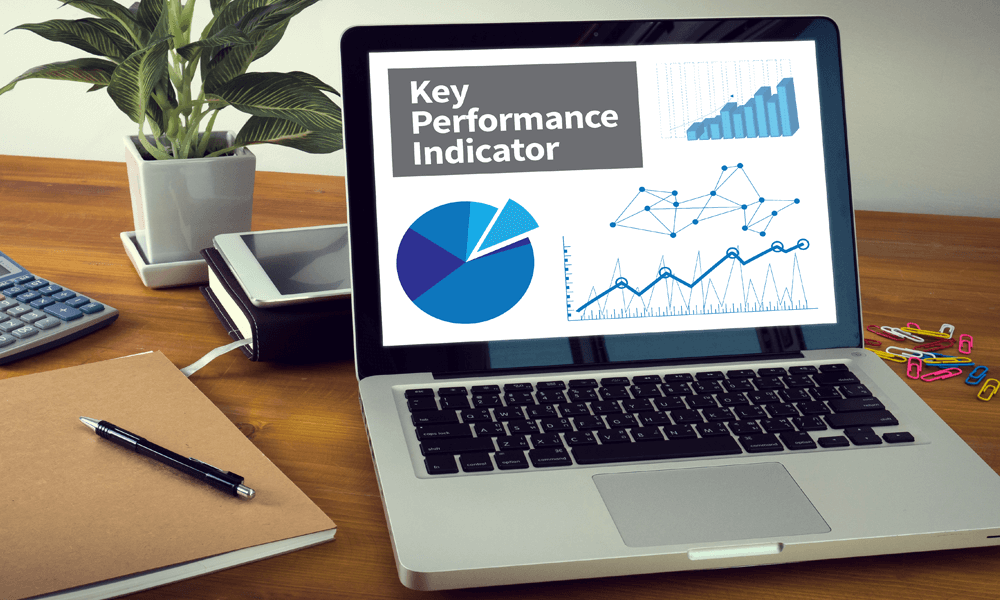What Are Key Performance Questions (KPQs)?
2 July 2021
The French philosopher Voltaire once advised to ‘judge of a man by his questions rather than by his answers’ and Albert Einstein maintained that all he ever did was ask simple questions. I have developed the concept of Key Performance Questions (KPQs) as a tool to help develop better and more meaningful Key Performance Indicators (KPIs).
KPQs basically identify the questions we need answers to before we then find KPIs that will help us answer those questions. In business, we often focus too much time on finding answers without asking the right questions. Nobel Prize winner Paul A. Samuelson makes this point when he quite rightly says “Good questions outrank easy answers.”

Definition: What is a KPQ?
A KPQ is a management question that captures exactly what managers need to know when it comes to each of their strategic objectives. The rationale for KPQs is that they focus our attention on what actually needs to be discussed when we review performance and most importantly, they provide guidance for collecting meaningful performance indicators.
We jump far too often straight to designing indicators before we are clear about what it is we need to know. By first designing KPQs we are able to identify our information needs and ask ourselves: ‘What is the best data and management information we need to collect to help us answer our key performance questions?’ Starting with KPQs ensures that, by default, all subsequently designed performance indicators are relevant. In addition, KPQs put performance data into context and therefore facilitate communication, guide discussion and direct decision making.
Google, KPQs and good science
An example of how powerful KPQs can be comes from Google – one of today’s most successful and most admired companies. Google’s CEO Eric Schmidt says:
“We run the company by questions, not by answers. So in the strategy process we’ve so far formulated 30 questions that we have to answer […] You ask it as a question, rather than a pithy answer, and that stimulates conversation.”
The principle of KPQs is basically the same as the one we apply in good science. When I did my PhD research training I learned how to apply the scientific method whereby you define a research question before you go on and decide on the most appropriate research method and data collection to help you answer your question.
From Goal, to KPQ, to KPI
In a business environment, this means starting with your strategic business objectives and then identifying between 1 and 3 KPQ for each goal. Once you are clear about the questions you need answers to can identify the KPIs. Here again, my advice would be to aim for between one and three KPIs per question. The overall goal is always to keep numbers of questions and indicators down to the vital few, which generally means the fewer the better.
Practical Examples of Key Performance Questions
At the global education provider International Baccalaureate (IB) the process of thinking about and designing KPQs highlighted significant shortcomings in established KPIs, explains IB’s Head of Strategy, Andrea Smith, “We already had a set of KPIs in place, but when we looked at them through the lens of the KPQs we found that they weren’t that useful. They were much more operational than strategic and it became evident that we didn’t have any KPIs that were really tracking the long-term health of the organisation”.
For example, for their strategic goal around teacher development the organisation has identified a number of KPQs, including: “To what extent are we offering the teacher development people want,” which in turn is measured by KPIs such as “teacher feedback” and “school feedback”. A further KPQ is “To what extent are we training more teachers,” which is measured by the KPIs “number of teachers trained to teach IB courses,” and “number of teachers trained per authorised program.”
Another example comes from theUK police force Durham Constabulary, which uses KPQs extensively. One of their strategic objectives isto ‘Tackle Criminality.’ This has three supporting KPQs, including, ‘How well do we prevent people from becoming criminals,’ which is being answered through KPIs including the ‘number of first time entrants as a percentage of all persons arrested,’ as well as KPIs around reoffending rates and the percentage of the population who are offenders.
Final Remarks
The U.S. humorist and cartoonist James Thurber said that “It is better to know some of the questions than all of the answers.” This couldn’t be more true for KPQs. In my opinion KPQs in many ways more important than KPIs are constitute a vital building block of successfully managing business performance.
Related Articles
AI And The End Of Progress? Why Innovation May Be More Fragile Than We Think
By now, “smart” versions exist of just about every home appliance, gadget and gizmos we can think of. However, manufacturers continue[...]
The Top 5 Technology Trends For 2026
By now, “smart” versions exist of just about every home appliance, gadget and gizmos we can think of. However, manufacturers continue[...]
The 7 Biggest Cyber Security Trends Of 2026 That Everyone Must Be Ready For
By now, “smart” versions exist of just about every home appliance, gadget and gizmos we can think of. However, manufacturers continue[...]
The Biggest Barriers Blocking Agentic AI Adoption
By now, “smart” versions exist of just about every home appliance, gadget and gizmos we can think of. However, manufacturers continue[...]
The Marketing Metrics That Will Matter Most In The Age Of AI Agents
By now, “smart” versions exist of just about every home appliance, gadget and gizmos we can think of. However, manufacturers continue[...]
AI Agents Are Already Reshaping Business Leadership And Decision Making
By now, “smart” versions exist of just about every home appliance, gadget and gizmos we can think of. However, manufacturers continue[...]
Sign up to Stay in Touch!
Bernard Marr is a world-renowned futurist, influencer and thought leader in the fields of business and technology, with a passion for using technology for the good of humanity.
He is a best-selling author of over 20 books, writes a regular column for Forbes and advises and coaches many of the world’s best-known organisations.
He has a combined following of 4 million people across his social media channels and newsletters and was ranked by LinkedIn as one of the top 5 business influencers in the world.
Bernard’s latest book is ‘Generative AI in Practice’.










Social Media